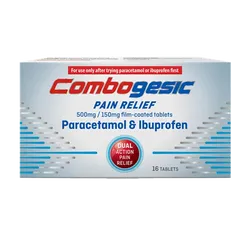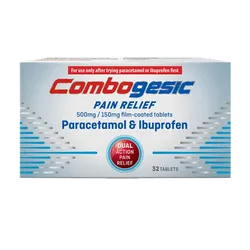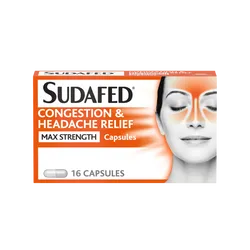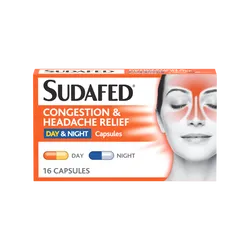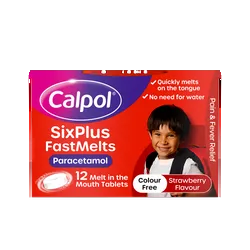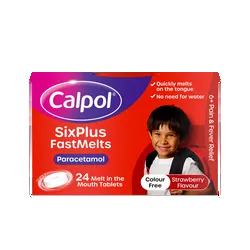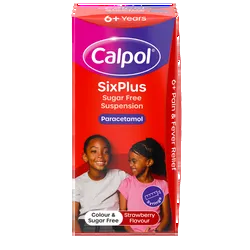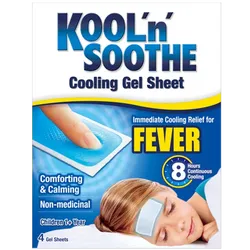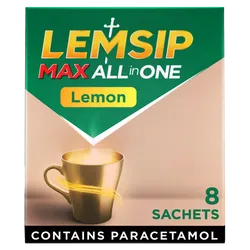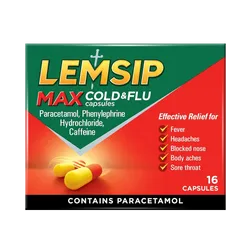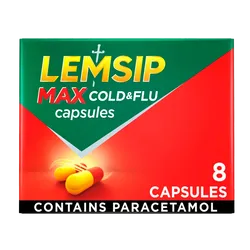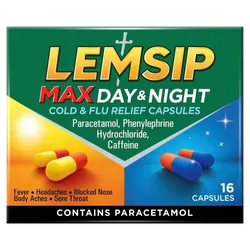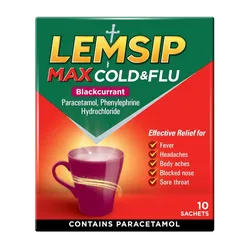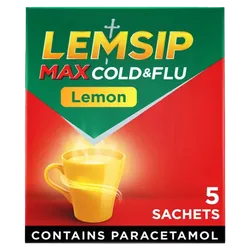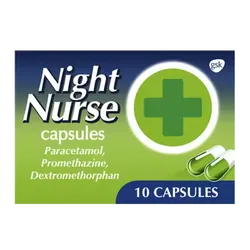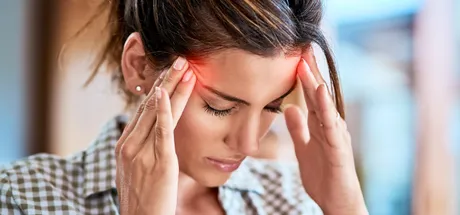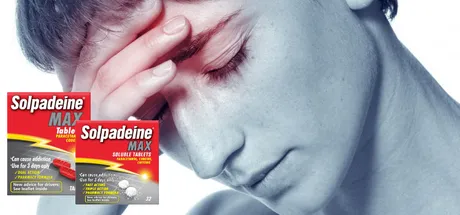
How to Get Rid of a Headache
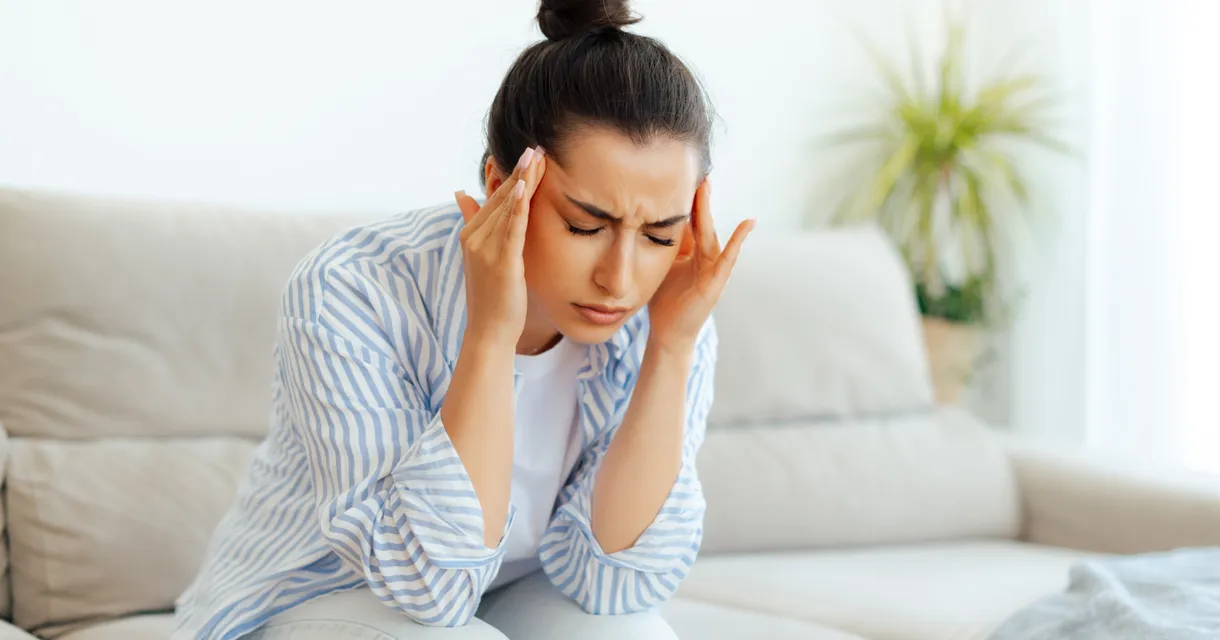
From staying hydrated and applying cold compresses to using over-the-counter pain relief, there are many safe ways to manage headache symptoms. Headaches are one of the most common health complaints, affecting people of all ages. They can disrupt work, sleep, and daily activities, but in most cases they can be eased with simple remedies.This guide explains the main types of headache and how to relieve them quickly and effectively.
Types of Headache and How to Get Rid of Them
Not all headaches are the same — and the right treatment often depends on the cause. The National Institute for Health and Care Excellence (NICE) highlights the importance of distinguishing between different types of primary headaches, such as tension-type headaches, migraines, and cluster headaches, as well as secondary headaches that may be linked to sinus problems or other conditions. Understanding the differences can help you find the most suitable relief.
| Headache Type | Symptoms | Natural Relief | Treatment Options |
|---|---|---|---|
| Tension Headache | Feels like a tight band around the head, often linked to stress, posture, or muscle tension. | Rest, hydration, relaxation techniques, gentle neck stretches, heat pack on shoulders. | Paracetamol, Ibuprofen. |
| Migraine | Throbbing head pain, often on one side; may include nausea, sensitivity to light and sound, visual disturbances. | Rest in a dark room, cold compress to forehead, regular sleep, avoiding known triggers. | Migraine relief tablets (ibuprofen/aspirin with caffeine), Sumatriptan (for diagnosed migraine). You can read more on how to get rid of classical and common migraines in our guide. |
| Sinus Headache | Pressure around eyes, cheeks, and forehead; nasal congestion; worsens when bending forward. | Steam inhalation, saline sprays, warm compress over sinuses. | Decongestants, Ibuprofen for pain relief. |
| Cluster Headache | Severe, piercing pain around one eye, occurring in cyclical patterns or ‘clusters’. May cause eye redness, tearing, nasal congestion. | Maintaining a regular sleep schedule, avoiding alcohol during cluster periods. | Requires medical treatment. Your GP may prescribe triptans (injection or nasal spray) or oxygen therapy. Over-the-counter medicines are not usually effective. |
Tension Headaches
Tension headache symptoms: often described as a dull, tight pressure around the forehead or back of the head. They are the most common headache type and are usually stress-related.
How to Get Rid of a Tension Headache
Try relaxation methods such as meditation or stretching, ensure good hydration, and use over-the-counter pain relief like paracetamol or ibuprofen if needed.
Migraines
Symptoms of a migraine: throbbing pain, usually one-sided, with possible nausea, vomiting, and light or sound sensitivity. Attacks may last from hours to days.
How to Treat a Migraine
Managing triggers (such as lack of sleep or certain foods) can help. During an attack, resting in a quiet, dark environment may ease symptoms. Medicines such as migraine relief tablets or triptans (if prescribed) may also be used. You can read more about migraines, symptoms and how to treat them over on our guide.
Sinus Headaches
Sinus headache symptoms: pain and pressure around the face, often linked to sinus infection or congestion.
How to Get Rid of a Sinus Headache Instantly
Steam inhalation, nasal rinses, and warm compresses can provide natural relief. Decongestants or pain relievers may also help reduce discomfort.
Cluster Headaches
Cluster headache symptoms: sudden, extremely painful headaches around one eye, occurring repeatedly over weeks or months.
How to Get Rid of a Cluster Headache
Cluster headaches usually require specialist care. Your GP may prescribe triptans or oxygen therapy. Over-the-counter medicines like paracetamol or ibuprofen are not effective for this type.
FAQs
- When should I worry about a headache?
- How do I know what type of headache I have?
- What is a cluster headache?
- What is the most common type of headache?
- When should I be concerned about a headache?
- Can diet affect headaches?
- What is the difference between a headache and a migraine?
- What is the difference between a migraine and a cluster headache?
When should I worry about a headache?
Most headaches are not a sign of a serious condition. However, you should contact a healthcare professional immediately if you experience a sudden, severe headache, a headache following a head injury, or a headache accompanied by a high fever, stiff neck, confusion, or blurred vision.
How do I know what type of headache I have?
Understanding the location and nature of the pain, as well as any accompanying symptoms like nausea or light sensitivity, can help you determine the type of headache. A headache that feels like a tight band is likely a tension headache, while a throbbing pain with nausea is more likely to be a migraine.
What is a cluster headache?
A cluster headache is a rare but extremely painful type of headache that causes an intense, piercing pain, usually around one eye. They are called cluster headaches because they tend to occur in periods or "clusters".
What is the most common type of headache?
The most common type of headache is a tension headache. These are typically mild to moderate in intensity and are often described as a constant dull ache or pressure around the head, similar to a tight band. They are frequently triggered by stress, fatigue, or muscle strain.
When should I be concerned about a headache?
While most headaches are not serious, you should seek medical attention if you experience a sudden, severe headache, a headache accompanied by fever, stiff neck, confusion, weakness, numbness, or vision changes. Also, consult a doctor if your headaches are worsening, changing in pattern, or if over-the-counter medications are no longer effective.
Can diet affect headaches?
Yes, for some people, certain foods and drinks can trigger headaches or migraines. Common culprits include aged cheeses, processed meats, caffeine withdrawal, chocolate, and alcohol (especially red wine). Keeping a food diary can help identify your specific triggers.
What is the difference between a headache and a migraine?
A headache is general pain in the head, while a migraine is a specific type of severe headache often accompanied by additional symptoms like throbbing pain, sensitivity to light and sound, nausea, or aura (visual disturbances). Migraines are typically more debilitating than common headaches.
What is the difference between a migraine and a cluster headache?
Migraines are typically moderate to severe, throbbing, and last for hours to days, often with nausea and light sensitivity. Cluster headaches are shorter but far more intense, usually focused around one eye and occurring in cycles. Both may require different treatments — migraine relief is often available over the counter, while cluster headaches usually need prescription therapy.
Published 27th August 2025 by

Allan Green
Registered Pharmacist & Head of E-commerce
Allan has been a Registered Pharmacist for 25+ years
He specializes in Ecommerce and Over the Counter medicines.
He is a Registered Pharmacist, who studied at University of Bradford.
He has been with Weldricks since 2006, starting as a branch manager before moving into area management and deputy superintendent roles.
His current responsibilities include web development, marketing, content, customer service and web operations teams.
Related Products
-
Combogesic Tablets Pack of 16 £4.18 save £0.27
-
Combogesic Tablets Pack of 32 £5.68 save £1.27
-
Sudafed Congestion & Headache Max Strength Capsules Pack of 16 £3.98 save £1.51
-
Sudafed Congestion & Headache Day & Night Capsules Pack of 16 £4.68 save £0.88
-
Calpol SixPlus Fast Melts Strawberry Flavour Tablets Pack of 12 £4.39 save £1.51
-
Calpol SixPlus Fast Melts Strawberry Flavour Tablets Pack of 24 £6.68 save £2.61
-
Calpol SixPlus Sugar Free Suspension Strawberry Flavour 6+ Years 100ml £3.95 save £1.95
-
Kool 'n' Soothe Cooling Strip Sachets Kids Pack of 4 £1.48 save £1.51
-
Lemsip Max All in One Lemon Sachets Pack of 8 £5.78 save £1.21
-
Lemsip Max Cold & Flu Capsules Pack of 16 £3.88 save £1.37
-
Lemsip Max Cold & Flu Capsules Pack of 8 £3.39 save £0.42
-
Lemsip Max Cold & Flu Day & Night Capsules Pack of 16 £5.48 save £1.01
-
Lemsip Max Cold & Flu Sachets Blackcurrant Pack of 10 £5.38 save £1.11
-
Lemsip Max Cold & Flu Sachets Lemon Pack of 5 £4.39 save £0.46
-
Night Nurse Capsules Pack of 10 £5.68 save £1.33
